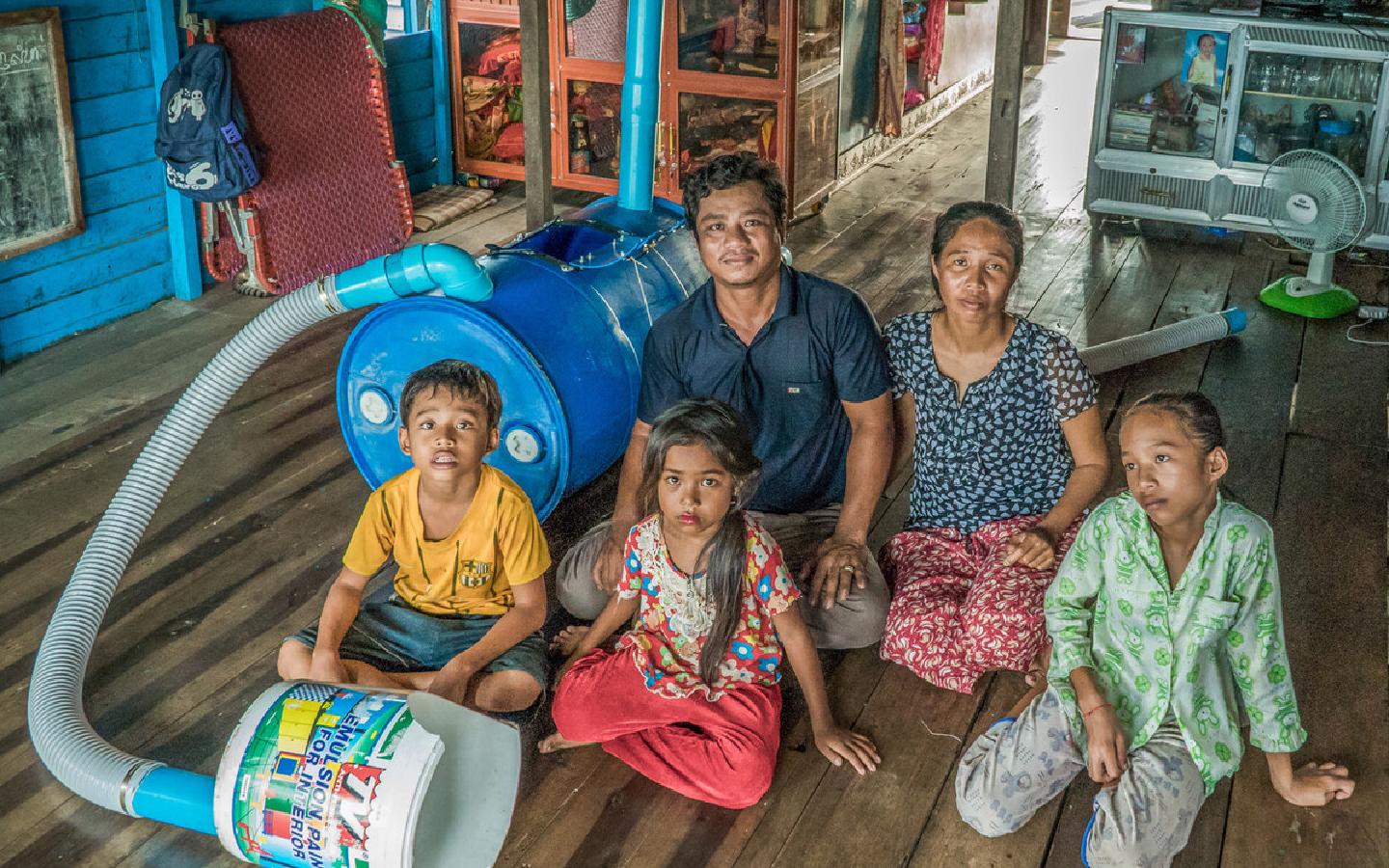Going to the toilet is a daily challenge for people living in floating villages in Cambodia. ADB, the Bill & Melinda Gates Foundation, and Japan are helping to bring better water supply and sanitation facilities to these villages and improve people’s health in rural Cambodia.
Improving Sanitation on Lake Tonle Sap
Cambodia’s enormous Lake Tonle Sap is the biggest freshwater lake in Southeast Asia and is home to 80,000 people living in 170 unique floating villages. Though there are homes, schools, and markets as in any other village, there are uniquely significant water and sanitation challenges. The lake swells in the rainy season and shrinks dramatically in the dry season. ADB has been working since 2009 to improve the water supply and sanitation for the villages in the provinces surrounding the lake.
In 2016, ADB provided a new financing package to help expand activities, enhance monitoring, and explore climate change adaptation and disaster risk management strategies. It has also allowed the testing of appropriate and affordable sanitation solutions for floating and flood-prone villages on Tonle Sap, where no modern toilets exist.
This harsh environment makes going to the toilet a health hazard, particularly for women and young girls. They usually go to the mangroves or “flooded forests,” where the water is shallow. Otherwise, they relieve themselves on makeshift enclosures on their houseboats, with holes that drain straight into the lake. Poor sanitation and no toilets contribute to diseases, particularly diarrheal disease, which is one of the biggest killers of children under 5 worldwide.
Floating Toilets
Apart from ADB’s own resources, the additional financing package includes funding from the Japan Fund for Prosperous and Resilient Asia and the Pacific (formerly Japan Fund for Poverty Reduction) and the Sanitation Financing Partnership Trust Fund, financed by the Bill & Melinda Gates Foundation (BMGF).
Funding from the BMGF supported the pilot testing of floating toilet digesters with nearly 800 households in four provinces around Lake Tonle Sap: Kampong Chhnang, Kampong Luang, Pursat, and Siem Reap. It has also paved the way for engaging the poorest communities who were not benefiting from the massive sanitation improvements in other parts of Cambodia.
“Good sanitation and clean water are so essential for healthy, happy lives. Rural Cambodia faces many water and sanitation challenges, especially the floating villages on Lake Tonle Sap, and they need innovative solutions,” said Siti Hasanah, ADB project officer and senior urban development specialist. “Floating toilets can truly be a game changer for Lake Tonle Sap, helping people in their daily lives avoid sickness and death from disease. ADB and its partners are bringing better water supply services and improved sanitation facilities to rural Cambodia.”
A floating toilet digester is essentially a portable waste treatment plant the size of a wine barrel. These digesters, attached to ceramic toilet bowls, can treat human waste before being released into the lake. Five designs of the floating digesters were studied for their advantages and disadvantages, ease of installation and maintenance, and durability. Local contractors, skilled laborers, and fecal sludge management operators participated in a series of training on how to build the different types of digesters.
Embracing Toilet Technology
When the pilot testing of the five floating digesters concluded in 2020, four were considered acceptable for further use. Approximately 84% of the users were satisfied with the effectiveness of their new toilets.
All four designs proved to be low maintenance and achieved a remarkable reduction in coliform bacteria levels by up to 99%. The pilot test also provided insights into the optimal choice based on factors such as the houseboat’s weight and size, safety in severe weather conditions, quality of the effluent, and the presence or absence of any unpleasant odors.
"Floating toilets can truly be a game changer for Lake Tonle Sap--helping people in their daily lives avoid sickness and death from disease."
~ Siti Hasanah, ADB senior urban development specialist
Share

